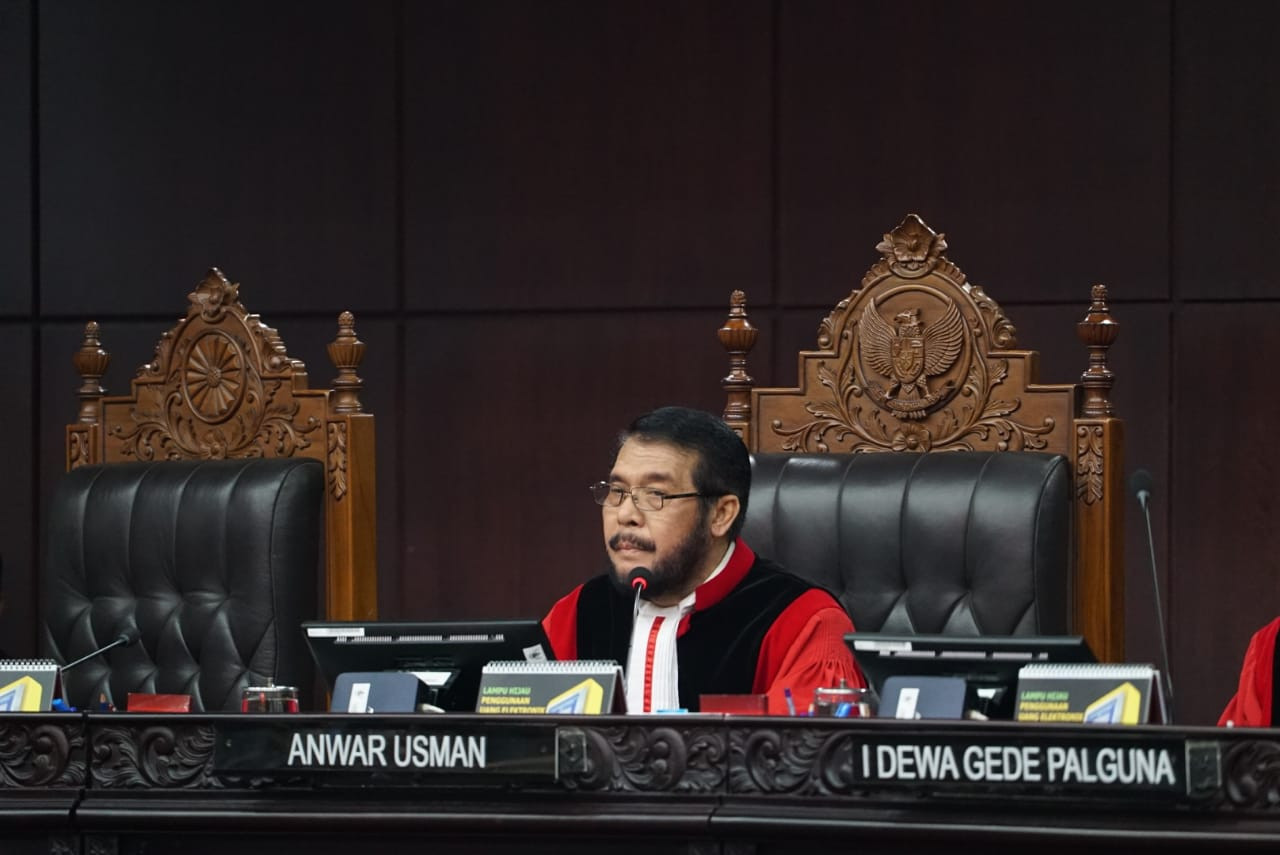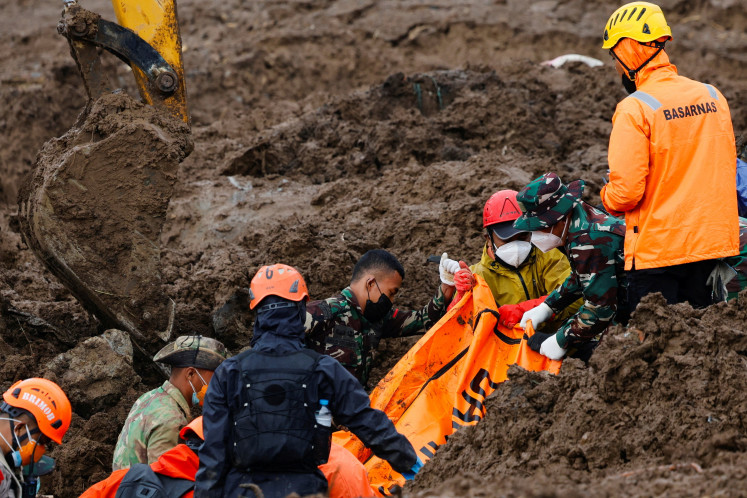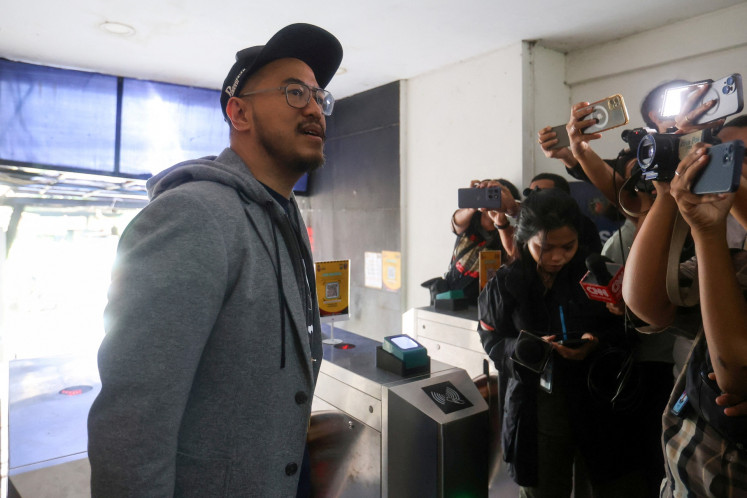Popular Reads
Top Results
Can't find what you're looking for?
View all search resultsPopular Reads
Top Results
Can't find what you're looking for?
View all search resultsBREAKING: Ethics council removes chief justice Anwar
The Constitutional Court ethics council ordered on Tuesday the removal of Anwar Usman from his post as chief justice after finding him guilty of ethics violations when he swayed the ruling on election candidacy requirements that effectively cleared the way for his nephew by marriage to run for vice president.
Change text size
Gift Premium Articles
to Anyone
The Constitutional Court ethics council ordered on Tuesday the removal of Anwar Usman from his post as chief justice after finding him guilty of ethics violations when he swayed the ruling on election candidacy requirements that effectively cleared the way for his nephew by marriage to run for vice president.
The ethics investigation revolved around apparent conflicts of interest resulting from Anwar's kinship with vice presidential candidate Gibran Rakabuming Raka, President Joko “Jokowi” Widodo’s eldest son, who benefitted from the ruling that altered the candidacy requirements.
Following the ethics verdict, Anwar still retains his position as justice but is now barred from adjudicating election disputes with potential conflicts of interest until he retires from the bench in 2028.
The three-member ethics panel, led by former Constitutional Court chief justice Jimly Ashiddiqie, found that Anwar committed a “heavy ethics violation” for failing to uphold the principle of impartiality as he did not recuse himself in adjudicating the controversial petition last month.
“The council orders the deputy chief justice to immediately hold a meeting to elect a new chief justice, without [Anwar] having the right to be nominated in the process,” Jimly said on Tuesday.

Anwar had recused himself from ruling on three ultimately unsuccessful petitions seeking to alter the 40-year age minimum for presidential and vice presidential candidates. But he then participated in a subsequent petition, and cast a deciding vote in a 5-4 tie-breaker in favor of adding an exception to the age restriction for prospective candidates who had served as elected regional leaders. A number of fellow justices switched sides to favor this position after the chief justice got involved. This overrode the previous rulings and effectively removed the legal barrier stopping 36-year-old Gibran from running for vice president next year.
One of the three ethics panel members, law professor Bintan Saragih, filed a dissenting opinion, saying that Anwar should have been dishonorably dismissed from the bench altogether.
The panel on Tuesday also concluded that all nine justices of the court had failed to keep information on the decision-making process confidential even though it could not find direct evidence of who leaked information regarding the votes to the public before the court read out the controversial ruling. All nine justices received a slap on the wrist in the form of a verbal warning.
The council maintained that it only has the authority to investigate ethics violations of court justices and not to decide the validity of the ruling on candidate eligibility.
But efforts to reverse October’s controversial candidacy ruling are underway, with four fresh petitions demanding that the Constitutional Court reexamine the age of candidacy question without Anwar on the bench.
The court is set to hold a hearing on Wednesday on one new petition filed by a law student at Yogyakarta’s Nahdlatul Ulama University demanding stricter requirements for electoral candidates: that the only candidates under the age of 40 who should be allowed to run for president or vice president are reelected governors of the country’s provinces.
Some experts have suggested that the petitioners could cite the ethics panel's decision as evidence of a mistrial.










